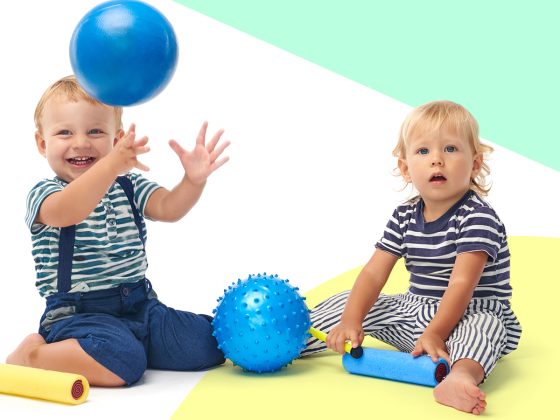
Forms of Play
As children grow, so do their styles of play.
Kids’ play styles change as they grow:
Solitary Play: This type of play is commonly seen in babies. They tend to play on their own, exploring anything and everything they can get their hands on, including their own body parts! You might see a baby get great giggles out of grabbing his foot or putting his hand in his mouth! While babies may play simple games like peek-a-boo with grown-ups, they don’t yet have the social skills or focus to play directly with other children and babies.
Parallel Play: As kids get a bit older (ages 2–3), they become interested in being around their peers. However, they haven’t yet honed the important social skills of sharing and turn taking that are necessary to play directly with others. At this age, kids are likely to play in parallel (side by side), with separate toys or objects. Even though kids playing in parallel may not interact, you might notice them observing one another and mimicking ways in which the other is playing.
Group Play: By the time kids enter school, they often play together in groups. You might see them sharing and taking turns playing with the same toys, doing dramatic or pretend play around a theme, or playing group games like duck, duck, goose or hide-and-seek. Playing together in groups can help kids improve their social and cognitive skills as they plan out play scenarios, switch roles, and solve problems together creatively.
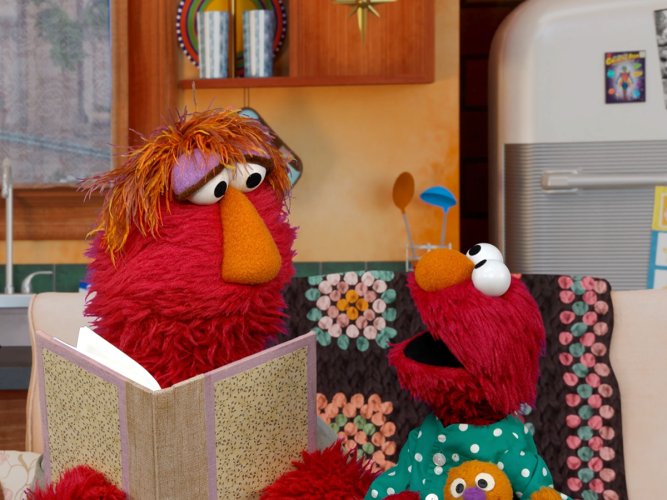
Go To Sleep, Elmo!
Handling a middle-of-the-night monster moment.
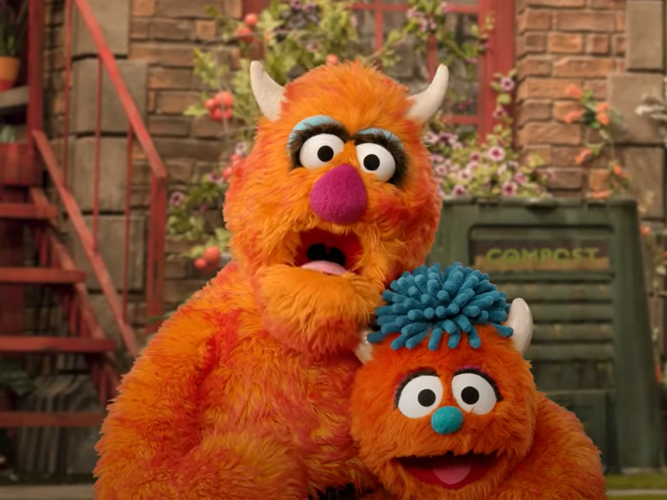
Monster Meltdown
Meltdowns happen… but they are somewhat predictable! As you try to handle them, curiosity and patience go a long way.
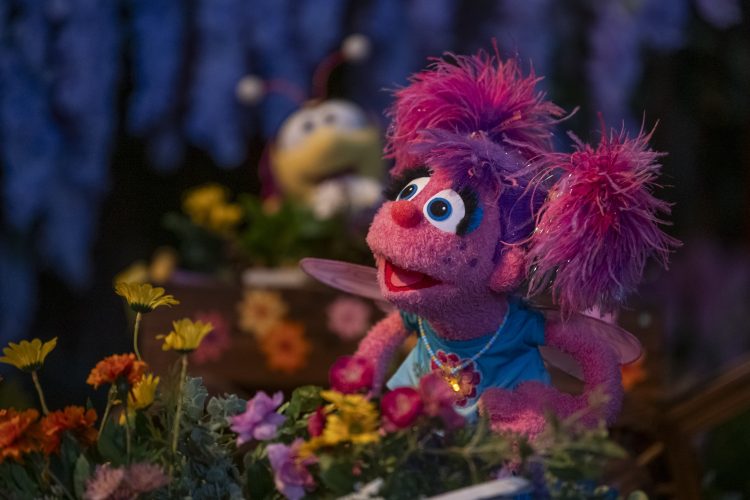
Watch and Play: Abby's Magical Beasties
Watch this episode and explore ways to extend the learning at home.
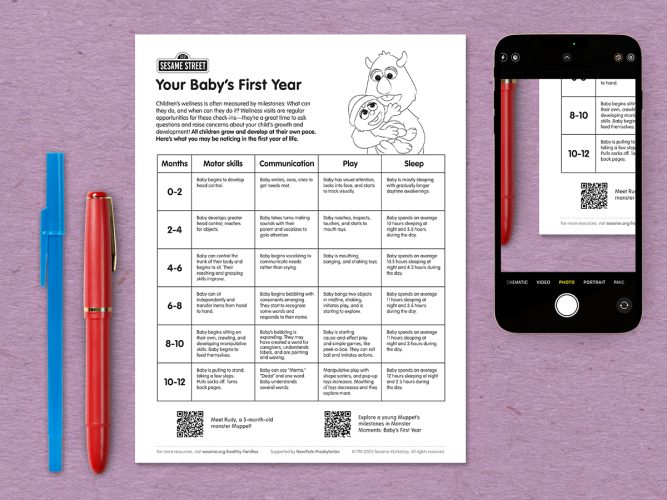
Milestones: Your Baby’s First Year
All children grow and develop at their own pace; use this chart to guide your expectations and observations so you can talk to your child’s pediatrician about questions or concerns.
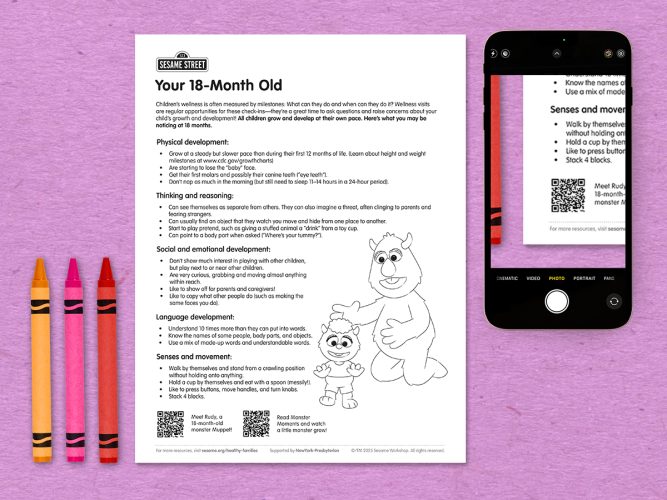
Milestones: Your 18-Month Old
All children grow and develop at their own pace; use this chart to guide your expectations and observations so you can talk to your child’s pediatrician about questions or concerns.
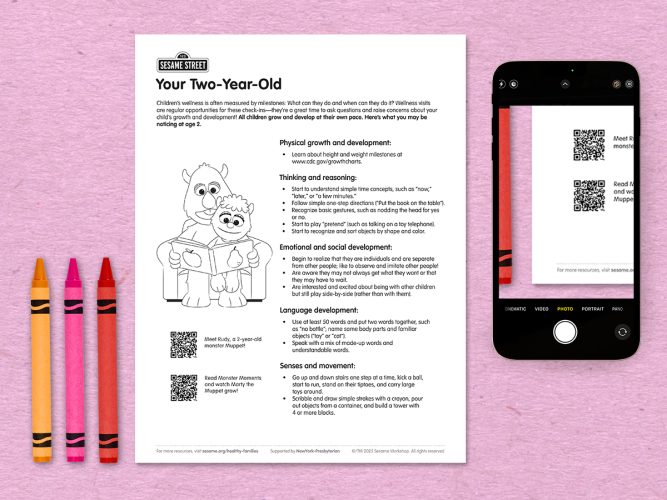
Milestones: Your Two-Year-Old
All children grow and develop at their own pace; use this chart to guide your expectations and observations so you can talk to your child’s pediatrician about questions or concerns.
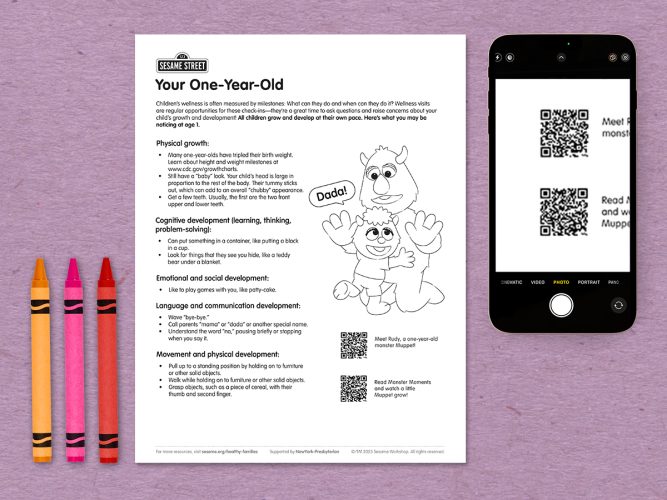
Milestones: Your One-Year-Old
All children grow and develop at their own pace; use this chart to guide your expectations and observations so you can talk to your child’s pediatrician about questions or concerns.
